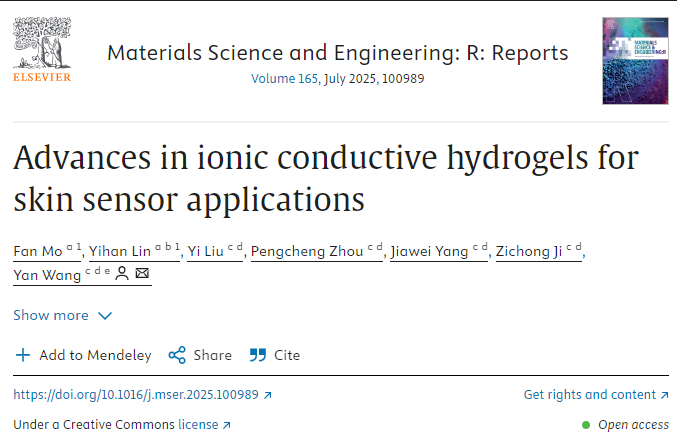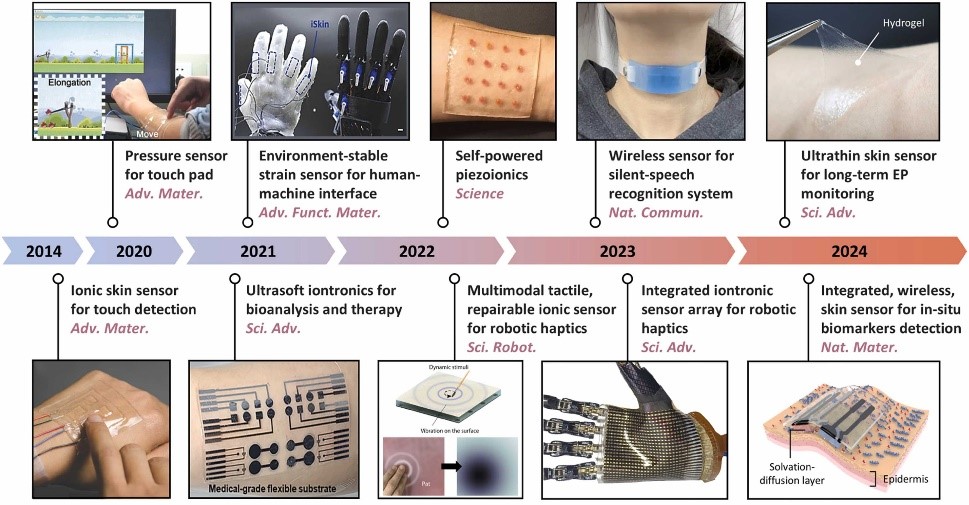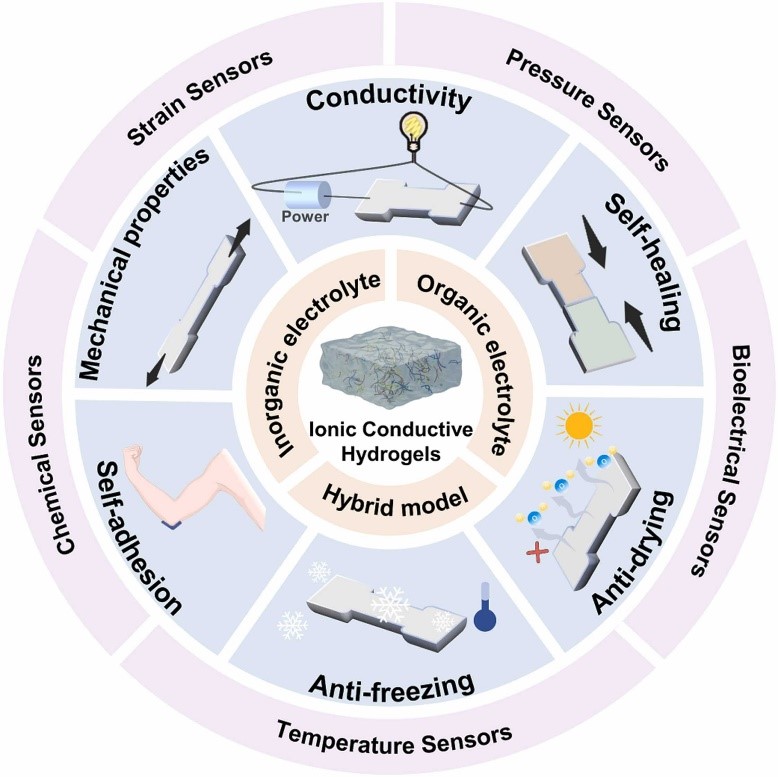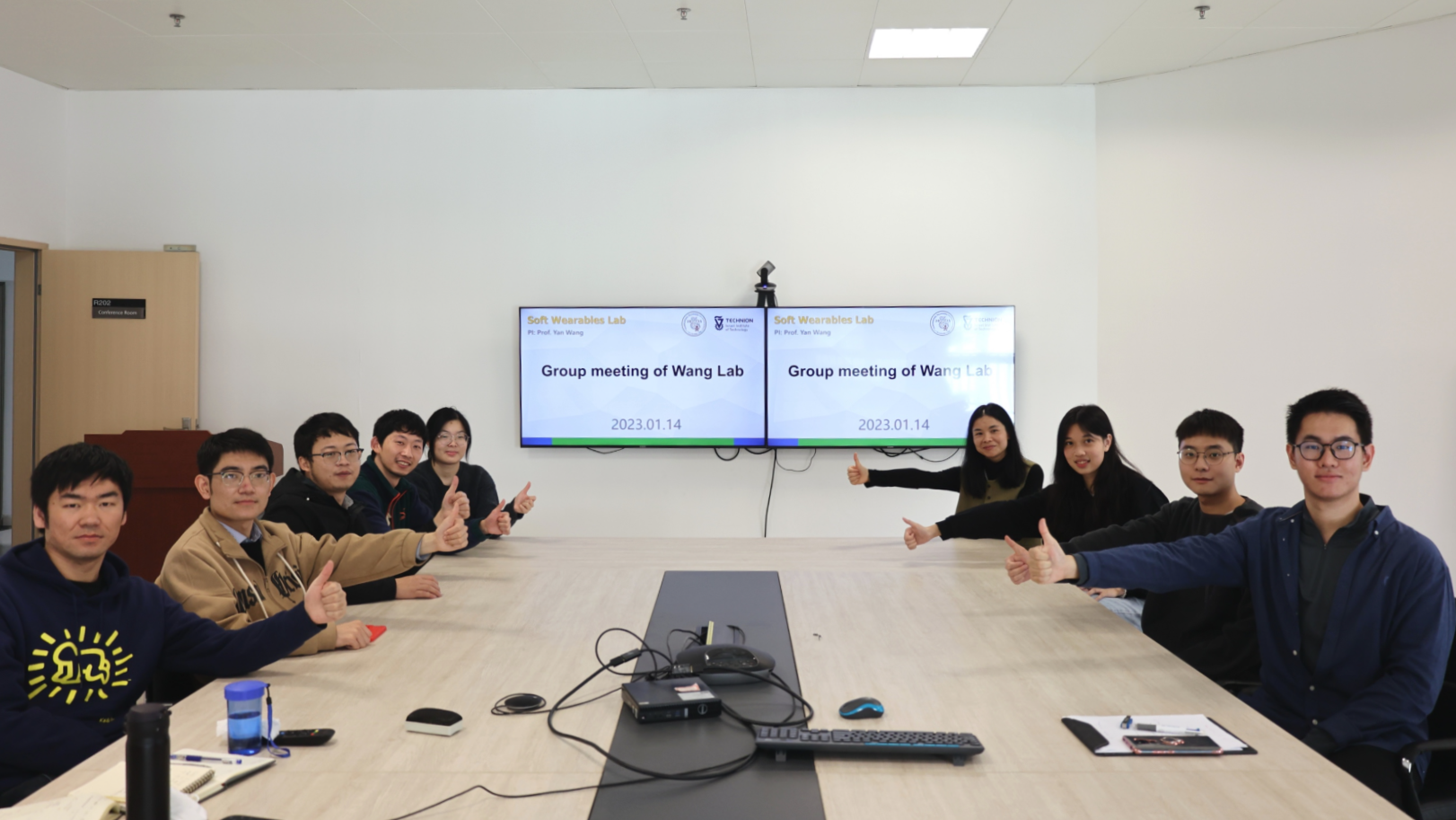PostTime:5/28/2025
With the growing demand for health monitoring, flexible wearable skin sensors have become a research hotspot in the field of bioelectronics. A research team from Guangdong Technion - Israel Institute of Technology (GTIIT) spent a year systematically summarizing the research progress and future directions of ionically conductive hydrogels in wearable sensors. Their review paper was recently published in Materials Science & Engineering R (impact factor: 31.6), a top-tier international journal in materials science and engineering. The first authors of the paper are GTIIT graduates Mo Fan (Cohort 2020) and Lin Yihan (Cohort 2019) from the Biotechnology and Food Engineering (BFE) program, with Assoc. Prof. Wang Yan from GTIIT Chemical Engineering (CE) Program serving as the corresponding author.

Compared to traditional electronically conductive hydrogels (such as those doped with carbon nanotubes or conductive polymers), ionically conductive hydrogels exhibit unique advantages in health monitoring due to their high softness matching human tissues, excellent biocompatibility, optical transparency, and biomimetic ion transport properties. These materials can more accurately simulate the ion transport mechanisms of biological tissues, giving them significant competitiveness in improving wearing comfort, ensuring long-term signal stability, and maintaining reliability in complex physiological environments.

Representative examples of ionic conductive hydrogels for skin sensor applications from 2014 to 2024
The team systematically reviewed recent advances in ionic hydrogel-based wearable sensors for long-term health monitoring. They innovatively categorized ionic conduction mechanisms into four paradigms: electrolyte-driven, ionic liquid-based, polyelectrolyte-based, and hybrid models, and thoroughly analyzed the charge transport mechanisms and structure–property relationships of each type. By establishing a multi-dimensional evaluation framework, the review highlights optimization strategies for key performance parameters, including electrical conductivity, mechanical properties (strength/toughness), interfacial characteristics (self-adhesion), environmental resilience (anti-freezing/drying), and functional intelligence (self-healing). From an application-driven perspective, the paper also systematically summarizes cutting-edge progress in the use of these materials for strain/pressure sensing, biosignal acquisition, and temperature/chemical sensing.

Overview of this review: conductive mechanisms, materials properties, and skin sensor applications of ionic conductive hydrogels
The review provides a systematic overview of ionic conductive hydrogels for skin sensor applications, with particular emphasis on their distinctive advantages in mimicking biological ion transport and enabling soft, flexible wearability. Building on the proposed classification of four ionic conduction mechanisms, the review further establishes a multi-dimensional performance evaluation framework encompassing electrical conductivity, mechanical properties, self-adhesion, self-healing, and environmental adaptability. From an application-oriented perspective, it systematically summarizes key research advances in multimodal skin-interfaced sensors—including strain, pressure, electrophysiological, thermal, and chemical sensing—demonstrating a high level of integration between material design and practical implementation.
GTIIT's BFE program is renowned for its distinctive interdisciplinary approach, integrating knowledge from biology, materials science, engineering, and information science. This opens up broad research pathways for students, including cutting-edge interdisciplinary fields such as biomaterials, bioinformatics, and biomedical engineering. "We joined Prof. Wang's research project out of curiosity about biomaterials. Although she comes from a chemical engineering background, her research ingeniously combines materials science with biological functions and engineering applications," Mo Fan noted. This "cross-disciplinary thinking" greatly benefited them in their subsequent research and even influenced their further academic pursuits. Currently, both Mo Fan and Lin Yihan are pursuing master's degrees at the Technion - Israel Institute of Technology, continuing their involvement in research projects related to biomaterials.

Assoc. Prof. Wang Yan (right 4), Mo Fan (right 1), Lin Yihan (right 2)
Materials Science & Engineering R is a high-impact journal published by the renowned international publisher Elsevier. With a 2024 JCR impact factor of 31.6, it is a Q1 journal in materials science and engineering, dedicated to publishing high-quality papers on cutting-edge research and trends in the field.
Link: https://doi.org/10.1016/j.mser.2025.100989
Text/Photos: Wang Yan's team, GTIIT News & Public Affairs
© GUANGDONG TECHNION-ISRAEL INSTITUTE OF TECHNOLOGY | 粤ICP备17036470号
